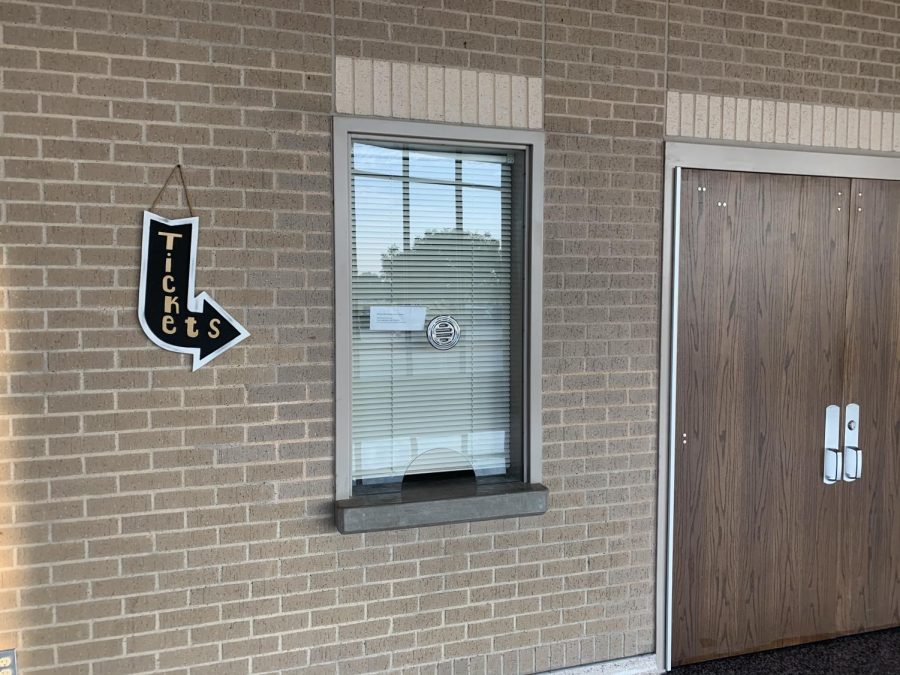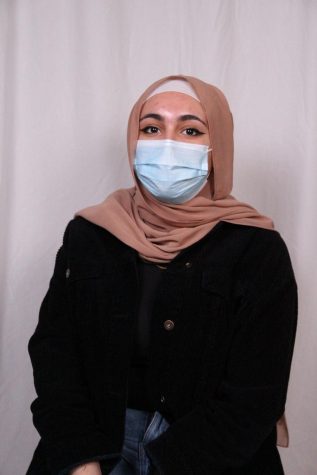Theatre Meets Covid-19
In the age of COVID-19, the theater department is needing to make some new adjustments.
The spotlight shines down on each actor and actress, passionately portraying their roles, all in hopes to bring a smile or a laugh or even a tear to the audience members tentatively watching. But in this new age, the spotlight is seemingly dimming, the many characters sound muffled and become harder to understand, and the smiles and laughs turn into looks of confusion. The spotlight shining onto each character, hugging or fighting, bringing tears or laughter to the audience soon becoming far apart and the characters soon muffled, unable to see how the character feels from a simple glance of their expression.
Prior to the arrival of Covid-19 on American shores, the theatre department had quite a bit planned for their students this year. Once social distancing and putting a mask on became a requirement , the theatre department was forced to change their original performance plans. Assistant theatre director, Jill Baker, is doing her best to be easy-going with the constant change occurring.
“Our original plan was to have a coffeehouse performance in the fall in early September, which would have been like a cabaret type performance with different songs and scenes and monologues from plays and musicals, kind of a variety show type thing. We had planned to do a one act Shakespeare show in theatre production sometime in October or November. Then, we were going to be working on our main stage musical which was supposed to be Thoroughly Modern Millie, that would have gone up in January. While none of that is actually happening anymore, I’m working flexibly. We ended up changing to a much smaller musical with a smaller cast. We also decided not to have after school rehearsals, so now we’re only doing it during my fourth period musical theatre class. We’re planning on performing You’re a Good Man Charlie Brown, hopefully in January,” stated Baker.
Being in the theatre department, a lot of students face challenges like learning lines and choreography. However, new challenges have risen due to the safety guidelines put in place as a result of the ongoing pandemic. In classes similar to theatre, close contact is almost inevitable. Sophomore, Hannah Albin, has faced difficulties in keeping herself from being too close to her friends in the class.
“Some of the challenges I have to deal with is that we can’t hug each other and talk to each other the same way. It makes it difficult to keep the chemistry in the classroom,” said Albin.
In an auditorium, the chairs are close together which, in today’s times, limits how many people can sit and enjoy the performance. Due to the social distancing mandate, more performances will have to be put on due to the occupancy in the theatre. Theatre director, Cara Cook, feels like there will be a struggle in ticket sales.
“We’re going to have to socially distance and we’re not going to be able to sell all of the tickets. We’ll probably have to do more performances so that we can balance out and recoup the funds,” stated Cook.
Wearing masks poses many inconveniences to people, such as not being able to fully see the faces of peers and understanding what someone is saying through muffled noise. Theatre is a very expressive form of art, often relying on the facial expressions of the actors and actresses to portray the message. The mask requirement makes the story-telling aspect of theater much more difficult. Sophomore, Cole Collier, brings himself closer to his character and he hopes that this will make his characters more emphasized and seen through the mask.
“Acting happens a lot with facial expression and a mask takes up half of your face so you have to show a whole portfolio of emotions with just your eyes and eyebrows, that’s probably the most difficult part of masks. I just hope to put on a good show this semester. However, I’m afraid that the audience won’t be able to hear us perform or that we won’t have a lot of people in the audience,” said Collier.
With the masks on, during both rehearsals and shows, students will need to project their voices and actions more than ever, all while not being too worried about any of the new challenges. Nevertheless, students are seeing this as an opportunity to improve their skills. Junior, Emily Hamm, hopes to gain experience and learn more about her techniques through wearing a mask.
“My hopes for this semester are to gain experience with using different bodily outlets to tell the story and not rely on the full face. Hopefully next semester we will be able to perform more comfortably and include more audience members in each performance,” said Hamm
Even though there are many struggles that the theatre department will face regarding social distancing and wearing masks, they are doing their best to put on a stage-worthy performance.


